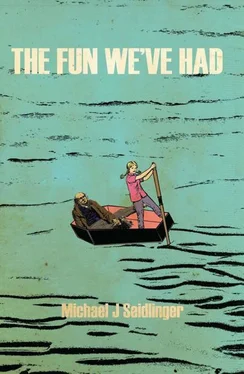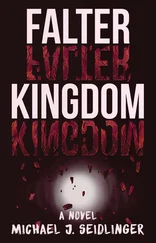Burden is always yours, never theirs. She accepted what she needed to accept. Her mom’s passing. The life that was a waste, the life she didn’t do much to protect or save.
Everything without a name, burned like a cigarette lit to be put out on her thigh.
She had finally accepted everything. Summarized as such:
Once upon a time a young preteen sought danger because that foolish person thought danger asked for nothing in return. Risk was simple. Risk was face value.
She never understood that danger would inevitably require a life. It took hers because she hadn’t been careful enough.
The stage, the final stage, lives passing on like the shark fins poking through the cooling waters.
If she could, she would feel his face. If she could, she would run her own hand across the sockets where her eyes had once been; if she could, she would separate herself from this body.
If she could, but she couldn’t because the small part of feeling that remained had a very physical connection. The ghosts in place, the ghosts she could hear calling her name, speaking beyond speech, beyond sound, faulting her for yet another fault, she ignored because they simply couldn’t understand.
She must tend to his burial.
She must feed the sharks.
“Are we having fun?”
This is the turn where he continues to fight back and gathers all the shards. There are as many as she thinks there should be to put him in a positive light.
By that you can expect a lot. With each shard she places him in heroic situations:
He fights the shark that had watched them from the start. And wins.
He swims to the horizon and pulls back a rope bridge. And they walk it over the horizon, back to their still-beating hearts.
He swims circles around the sharks and gets them to cannibalize each other.
He builds a second coffin for her and they both sleep side-by-side.
He freely controls the temperature of the sea.
He makes sense of the nonsense in their lives. He tells her that this was all just a dream, and maybe, depending on how traumatic this had been, a nightmare, and she wakes up.
It’s all part of his study.
She wakes up and feels so much better.
Key word: feel.
He makes her feel again.
Say goodbye to numbness.
He makes death as distant as possible. But even she can’t completely imagine how that might be possible.
The one that works best is the one where he gathers the light and places the moon back on its perch. It is the one where he kicks the sky back up to its typically impossible-to-reach distance.
He places her on his back, tells her to grip on, and paddles back to the coffin. In that coffin, they sit and enjoy. They watch as the sky becomes a real sky, full of stars, the moon looking like it had never been broken. Their senses return and they share a perfect moment.
Demise sticks to its ocean depths.
They share the dream of a starry night.
By dawn, they let go. She figures if it must be over, it ends at once, together, with a single breath, a single blink of an eye. Most of all, she imagines him as a hero.
Her hero.
Acceptance, all along. Each turn of a thought led to the inevitable.
Accept the impossible. Deny it and admit defeat.
Restrict and remain closed to the possibilities and you let demise infect your senses. Soon you feel numb, muted — a life being wasted. A person has fun because they feel.
“Are we having fun?” she shouted.
The ghosts were there to respond.
Their replies may have been yes, but the majority would say no. The ghosts, the few that posed as her demons, began to disappear. They concluded their own passing, and perhaps they took with them a piece of her peril.
She felt the pressure, the burden, lifting, and yet she could not change the fact that she must face this alone. Seeing off someone you knew, someone you cared for, more than yourself.
Some would arrive and some would leave, but the ghosts, they would always be there, watching and waiting for what they couldn’t let go of in life.
Much of what they held onto is what they denied, what caused them great anger, something they bargained for, or something they outright feared. The ghosts held on because they denied it from the start. So then, the reader accepts it no matter the unfortunate ending to an already unfortunate tale.
Accept that she had to let him go in order to loosen her own grip. Sadness isn’t all she felt. What she couldn’t imagine, the reader of this tale might offer a hand, suggesting alternatives to how the tale can be told. For this telling at least, she must step out of the coffin. She must take to the shark-infested waters, the water that once again began to cool into a freeze. Blind to all sense, she will step in and envision herself standing on water.
And it would be all she saw.
Burden layered the body that had been his, the body she had borrowed, in the texture of the coffin. The texture of velvet and that of a tender embrace cradled his body, the one she could no longer cradle.
The shark that directed is the shark that watched as she pushed the coffin away. A pretend breath and then that one gentle push…
And the lapsing moment, one that goes on for way too long but then it might not have been very long at all:
She was the one that treated it as forever.
After forever lengthened to the shark swimming with the coffin trailing it, she stood still on the water.
After three steps, the water below her feet turned to ice.
After that, she stepped on shark fins, fighting off the inhibition. She tempted them. Go ahead and bite.
Of course, what she imagined to be sharks might have been nothing but frozen waves jutting up like pointed rocks.
For this to work, she continues as our point-of-view, and because she is our means of seeing the story to its end, she really does feed the sharks and it is treated with surprise when the sharks do not bite, perhaps full or lacking an appetite.
She had to continue on her own.
There wouldn’t be a sudden end.
She counts the steps she takes as one year’s time together. In a place where time is meaningless, the duration that might have been “the rest of their lives” looks a whole lot like this:
But then they were already dead, and this line would be most acceptable as an indication of how much time they had together.
Her imagination filled in the blanks.
Everything changes. Nothing is true.
The water whispers, the depths shout.
She is a different person.
He always was.
In the end, his turns became hers.
Her swimming had become a walking.
A long walking. The walk was her penance.
The walk was her search for him.
This tale had come to its conclusion.
It was an emptiness that she accepted.
The emptiness can be seen on the page.
The blank of the page is death’s take.
What remains is what a life leaves behind.
The more you accept the less exists on the page.
She imagines his last turn as flat desert terrain built on a dead, frozen sea that would never again thaw.
She imagines that she has been walking for her entire life.
She imagines an expanse of time where she carries the zest for life. It looks like a tiny coffin, a little pocket-sized trinket that she holds in one of her hands.
Time goes on like this. Walking. Adventure.
No need to think about tomorrow.
He shows up. They meet because they are walking in the same direction. They seek out the same destination.
Читать дальше












